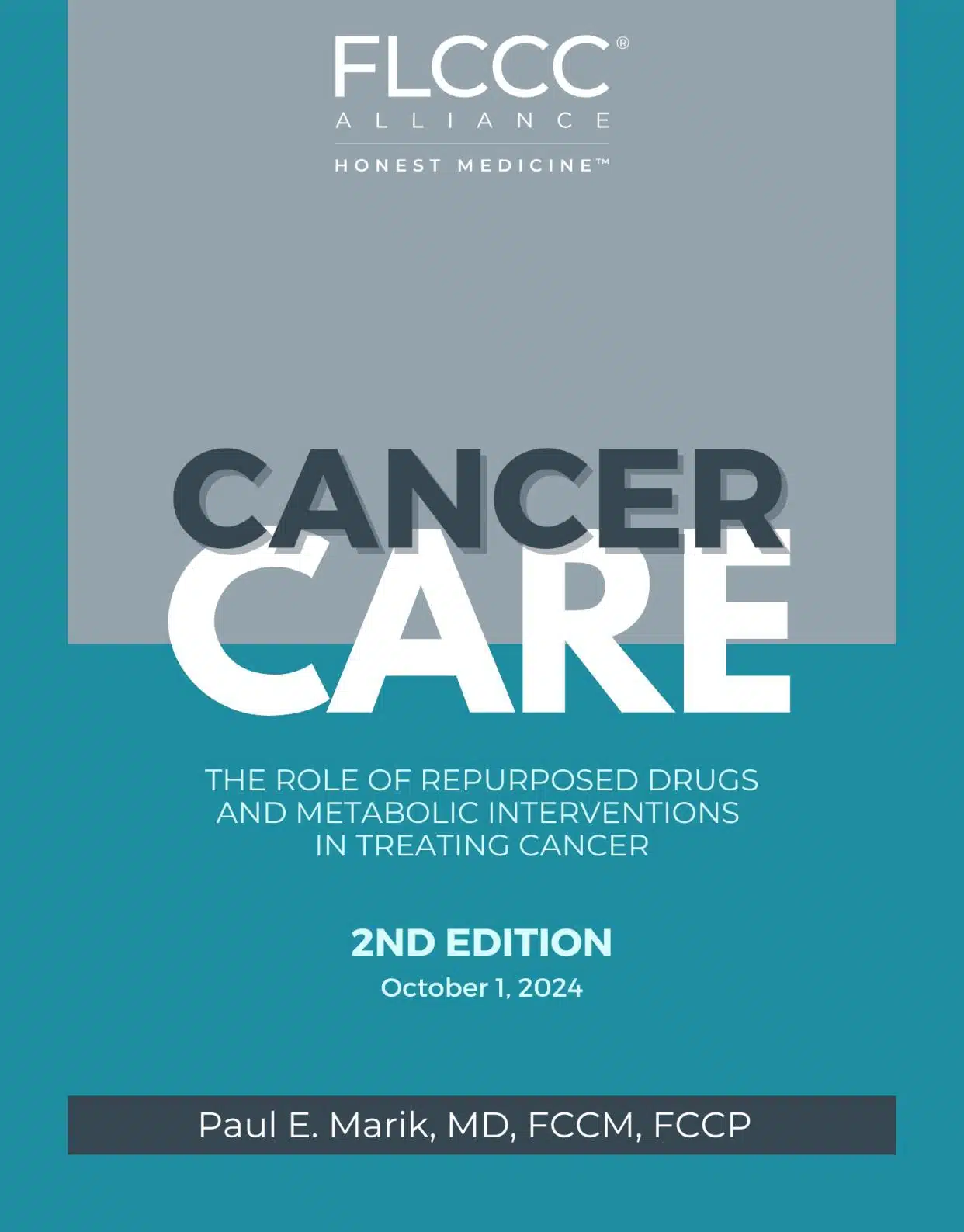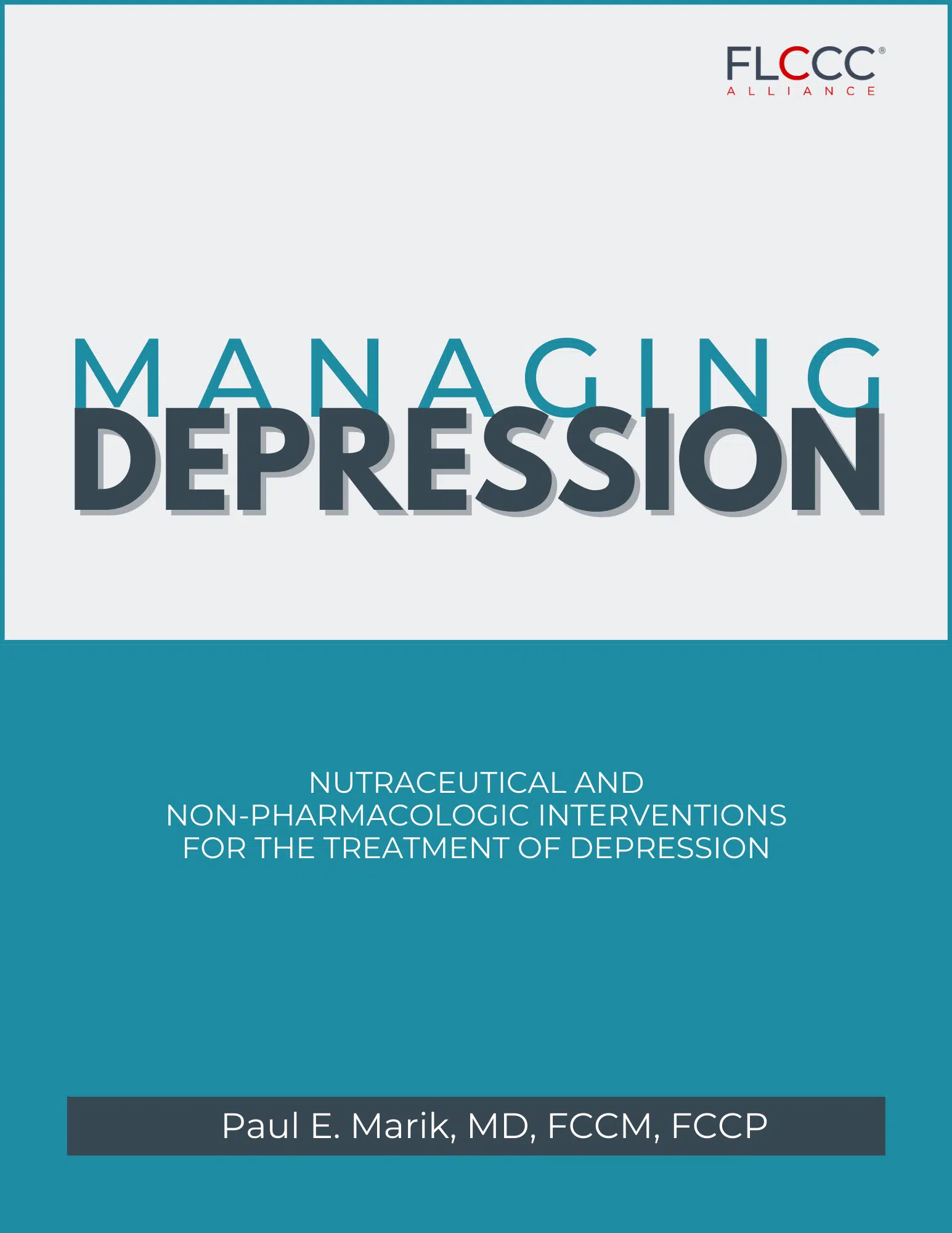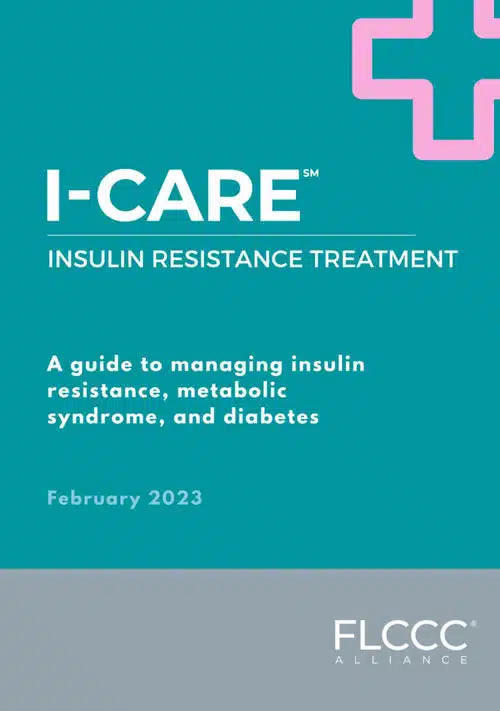Een groep artsen die zich kritisch uitspraken over de corona-aanpak, heeft 18 alternatieve kankerbehandelingen op een rij gezet die werken.
Deze behandelingen zijn niet alleen wetenschappelijk onderbouwd, maar in de meeste gevallen ook nog eens spotgoedkoop of geheel gratis.
De eerste antikankertherapie is glucose zelfmanagement door middel van een ketogeen dieet. Deze strengste vorm van een koolhydraatarm dieet zorgt ervoor dat kankercellen afsterven doordat ze zonder brandstof komen te zitten, in dit geval glucose.
(Video verwijderd? Klik hier...)
De tweede behandeling is beweging. De artsen zeggen dat regelmatig bewegen de immuunfunctie versterkt, wat helpt bij de bestrijding van kanker.
Vitamine D3 is ook essentieel. Een vitamine D-tekort is gelinkt aan een verhoogd risico op kanker. Door vitamine D3 bij te slikken ondersteun je het immuunsysteem en help je de verspreiding van kankercellen te voorkomen, aldus de artsen.
Op de lijst staan ook ivermectine en fenbendazol. Ivermectine verstoort naar verluidt de celprocessen die cruciaal zijn bij het ontstaan van kanker en fenbendazol voorkomt dat kankercellen zich vermenigvuldigen en werkt celdood in de hand.
Dit zijn de 18 behandelingen:
- Glucose zelfmanagement en ketodieet
- Beweging
- Stressreductie, slaap en zonlicht
- Vitamine D3
- Propranolol
- Melatonine
- Metformine
- Curcumine
- Ivermectine
- Mebendazol/fenbendazol/albendazol
- Groene thee
- Omega 3-vetzuren
- Berberine
- Atorvastatine of simvastatine
- Sildenafil, tadalafil of vardenafil
- Disulfiram
- Ashwagandha
- Itraconazol
Hier vind je uitgebreide informatie over alle 18 behandelingen.
Over de auteur: Robin de Boer is economisch geograaf. Volg hem hier op Substack.
Alternative Cancer Treatments: 18 Proven Interventions
Explore 18 proven alternative cancer treatments and therapies that can help manage side effects and complement traditional care for people with cancer.

Facing a cancer diagnosis can feel like navigating an endless maze with no clear direction. The overwhelming emotions and confusion that accompany such news are shared by many. While conventional cancer treatments like chemotherapy and radiation therapy have a role to play, there’s a growing interest in alternative therapies that can complement or even replace traditional methods. Did you know that many alternative cancer treatments have been explored, offering new hope to those affected by cancer?
The use of complementary and alternative medicine is becoming more prevalent as patients seek options beyond conventional medical treatments. Alternative medicine includes therapies used outside of standard medical practices, offering different approaches to treat cancer. Integrative medicine combines both conventional and alternative treatments, aiming to improve outcomes and enhance quality of life.
One shining example in this field is Dr. Paul Marik’s “Cancer Care: 2nd Edition,” a comprehensive guide that challenges conventional cancer treatment paradigms. This newly updated edition is available as a free download on our site, or you can purchase it on Amazon, with all proceeds supporting our ongoing investigation into cancer research. By arming yourself with knowledge, you can take control of your cancer journey and explore options that may have been previously overlooked.
Below, we’ve compiled a list of 18 alternative cancer treatments and interventions that offer hope and empower you to make informed decisions about your health. This science-backed curation is based on over 1,500 peer reviewed references from the medical literature. Let’s dive in!
18 Complementary and Alternative Therapies to Treat Cancer
Contrary to common belief, complementary or alternative therapies are found in cancer research around the world. In this post, we’ll look at 18 alternative methods to help people with cancer.
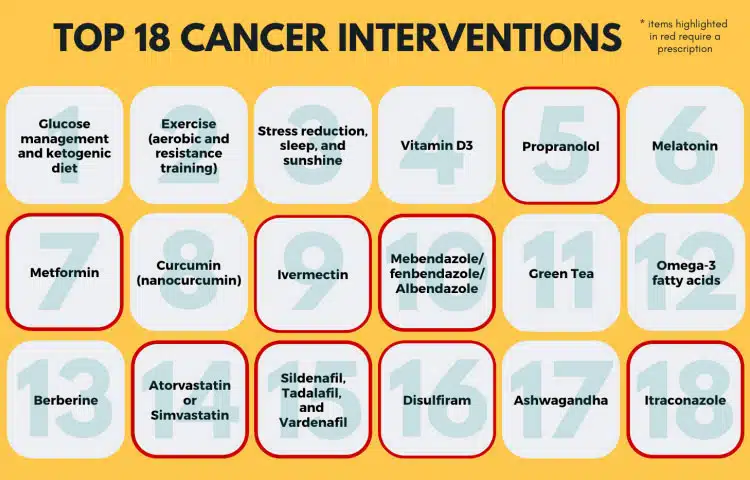
- Glucose Management & Keto Diet
- Exercise
- Stress Reduction, Sleep, and Sunshine
- Vitamin D3
- Propranolol
- Melatonin
- Metformin
- Curcumin (Nanocurcumin)
- Ivermectin
- Mebendazole/Fenbendazole/Albendazole
- Green Tea
- Omega-3 Fatty Acids
- Berberine
- Atorvastatin or Simvastatin
- Sildenafil, Tadalafil, and Vardenafil
- Disulfiram
- Ashwagandha
- Itraconazole
Let’s take a look at each one to learn how these types of alternative medicines and interventions work!
1. Glucose Management and Ketogenic Diet
Glucose management through a ketogenic diet is an alternative cancer diet that has gained traction in recent years. This diet emphasizes low carbohydrate intake, which may help slow the growth of cancer cells by depriving them of glucose, their primary energy source. By reducing glucose spikes, the ketogenic diet aims to create an environment where cancer cells can’t thrive. Many people with cancer have turned to this dietary approach as a complementary therapy to standard cancer treatments, hoping to enhance their effectiveness and reduce side effects.
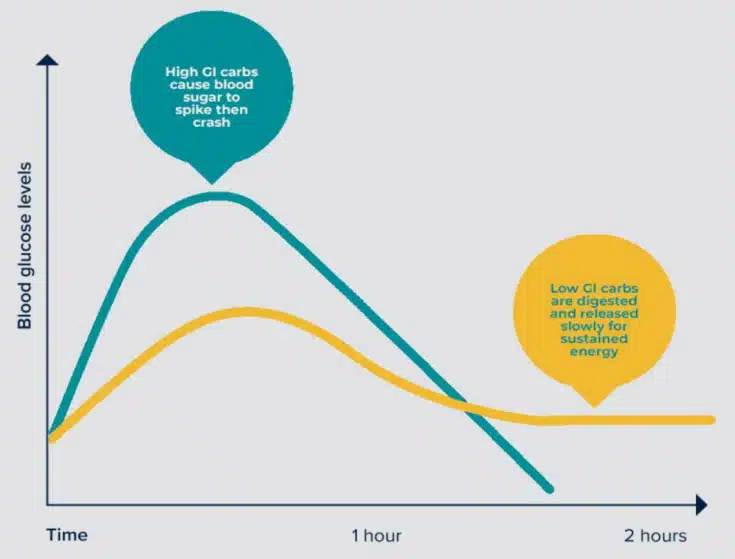
Mechanisms and Dosage:
- Dietary Approach: Limit carbohydrates to less than 25 grams per day.
- Healthy Fats: Emphasize omega-3 fatty acids and saturated fats from natural sources.
- Glucose Monitoring: Use continuous glucose monitoring to maintain post-meal glucose levels under 120 mg/dL.
🔍 Considerations:
- Not suitable for everyone; people with certain metabolic disorders or who are pregnant should consult their healthcare provider.
👉 Learn More: Eat Well: Guide to Fasting and Healthy Eating
Dr. Paul Marik talks Cancer Care on The National Desk
2. Exercise (Aerobic and Resistance Training)
Exercise is more than just a fitness regimen; it’s an integral part of alternative cancer treatments. Regular physical activity has been shown to improve cancer survival rates and enhance quality of life. Both aerobic exercises and resistance training can help reduce inflammation, boost immune function, and combat fatigue caused by cancer and its treatment. Engaging in exercise not only strengthens the body but also provides a sense of empowerment and control over one’s health journey.
Mechanisms and Dosage:
- Aerobic Activity: Aim for at least 150 minutes of moderate-intensity exercise per week.
- Resistance Training: Include two sessions per week targeting major muscle groups.
- Mind-Body Practices: Incorporate yoga or tai chi to reduce stress.
🔍 Considerations:
- Consult your healthcare provider before starting any new exercise program, especially during treatment for cancer.
- Adjust intensity based on your energy levels and side effects of cancer treatments.
👉 Learn more: FLCCC Fitness and Strength Training Guide
3. Stress Reduction, Sleep, and Sunshine
Managing stress and ensuring adequate sleep are crucial complementary therapies used by people with cancer. Chronic stress can negatively affect the immune system and may contribute to the growth of cancer. Adequate sleep and exposure to natural sunlight can help regulate hormones and improve mood, aiding in the fight against cancer. Embracing relaxation techniques and spending time outdoors can provide emotional relief and a sense of normalcy during challenging times.
Mechanisms and Dosage:
- Sleep: Aim for 7-9 hours of restorative sleep each night.
- Stress Reduction Techniques: Practice meditation, deep breathing, or mindfulness exercises daily.
- Sunshine: Spend at least 15 minutes outdoors each day for natural vitamin D synthesis.
🔍 Considerations:
- If sleep disturbances are caused by cancer treatments, consult your healthcare provider for management strategies.
👉 Learn more: 10+ Ways to Manage Stress
4. Vitamin D3
Vitamin D3 is more than just a vitamin; it’s a hormone that plays a role in cell growth modulation. Low levels of vitamin D have been linked to an increased risk of cancer. Supplementing with vitamin D3 may support the immune system and help prevent cancer cell proliferation. For those affected by cancer, maintaining optimal vitamin D levels could be a simple yet powerful addition to their treatment plan.
Mechanisms and Dosage:
- Supplementation: Dose titration according to vitamin D blood levels, aiming for a level of > 50 ng/mL (target 55-90 ng/mL)
- Sun Exposure: Safe sunlight exposure can naturally boost vitamin D levels.
- Synergy: Vitamin D3 works well with vitamin K2 and magnesium.
🔍 Considerations:
- Patients taking Coumadin need to be closely monitored and the need to consult with their PCP before taking vitamin K2.
👉 Learn more: All About Vitamin D3
5. Propranolol
Propranolol, a beta-blocker traditionally used for heart conditions, is being explored as an alternative cancer treatment. It may help reduce stress-induced cancer progression by blocking adrenaline receptors on cancer cells, potentially slowing tumor growth and metastasis. This approach addresses the connection between stress and cancer, offering a unique angle in cancer care.
Mechanisms and Dosage:
- Dosage: Typically 20-40 mg twice daily, but dosing should be individualized.
- Mechanism: Blocks beta-adrenergic receptors, reducing the effects of stress hormones on cancer cells.
🔍 Considerations:
- Not suitable for people with asthma or certain heart conditions.
- Sudden termination of treatment is not advised.
👉 Learn about Propranolol + more: Download Cancer Care
6. Melatonin
Melatonin, a hormone regulating sleep-wake cycles, has shown promise in cancer therapy due to its antioxidant properties. It may enhance the effectiveness of chemotherapy and radiation therapy while protecting normal cells from damage. For cancer patients struggling with sleep disturbances, melatonin offers the dual benefit of improving sleep quality and potentially combating cancer cells.
Mechanisms and Dosage:
- Dosage: The optimal dosing regimen for melatonin is not clear. Most studies have used a dose of 20-40mg at night.
- Mechanism: Scavenges free radicals, induces apoptosis in cancer cells, and modulates the immune system.
🔍 Considerations:
- May cause vivid dreams or daytime drowsiness.
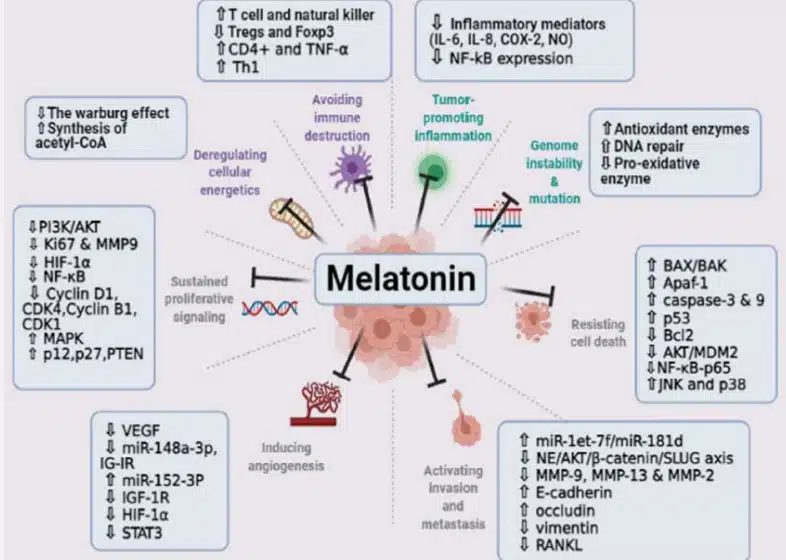
7. Metformin
Metformin, commonly used for type 2 diabetes, is being investigated for its potential in cancer treatment. It may inhibit cancer cell growth by reducing insulin levels and activating pathways that suppress tumor development. This medication offers a promising avenue for targeting the metabolic aspects of cancer.
Mechanisms and Dosage:
- Dosage: Typically 500-1,500 mg daily, depending on tolerance.
- Mechanism: Activates AMPK pathway, reducing insulin resistance and inhibiting cancer cell proliferation.
🔍 Considerations:
- Can cause gastrointestinal side effects; start with a low dose.
- Prolonged use is associated with vitamin B12 deficiency; supplementation with a B complex vitamin is therefore suggested
- Metformin may cause very low blood glucose when combined with berberine
👉 Did You Know? Metformin also has COVID-fighting potential
8. Curcumin (Nanocurcumin)
Curcumin, the active ingredient in turmeric, has anti-inflammatory and antioxidant properties. Nanocurcumin formulations enhance absorption, potentially increasing its effectiveness as an alternative treatment for cancer. By interfering with cancer cell signaling pathways, curcumin may inhibit tumor growth and spread.
Mechanisms and Dosage:
- Dosage: 500-1,000 mg of nanocurcumin daily.
- Mechanism: Inhibits cancer cell proliferation, induces apoptosis, and disrupts cell signaling.
🔍 Considerations:
- Curcumin has been reported to interact with several different drugs, including antidepressants, antibiotics, and anticoagulants like Coumadin and clopidogrel.
👉 Did You Know? Curcumin also appears in our Managing Depression Monograph
9. Ivermectin
Ivermectin will be a medicine well known to FLCCC followers as an incredible treatment for COVID-19 infection, among many other uses. It was first used as an antiparasitic medication, but more recently has been studied for its potential anticancer properties. Beyond its traditional use, it may offer a novel approach to cancer therapy by affecting cancer cell survival. Some preliminary studies suggest that ivermectin could disrupt specific pathways that cancer cells use to grow and divide.
Mechanisms and Dosage:
- Dosage: Under investigation, some research suggests 1mg/kg/day for up to 6 months.
- Mechanism: May interfere with cellular processes essential for cancer cell viability.
🔍 Considerations:
- As ivermectin does not cross the blood-brain barrier, it is likely ineffective for
brain tumors. - Caution is advised in patients with disruption of the blood-brain barrier.
👉 Learn more: The Remarkable Story of Ivermectin
10. Mebendazole/Fenbendazole/Albendazole
These antiparasitic drugs are being researched for their potential to treat cancer by interfering with microtubule formation in cancer cells, leading to cell death. This mechanism is similar to how some chemotherapy drugs work, offering a possible alternative or adjunct to conventional treatments.
Mechanisms and Dosage:
- Dosage: 100-200 mg/day
- Mechanism: Disrupts microtubule formation, inhibiting cancer cell division and inducing apoptosis.
🔍 Considerations:
- Mebendazole is available from international (India) and local compounding pharmacies for between 25c to $2 for a 100 mg tablet.
11. Green Tea
Green tea is rich in catechins like EGCG, which have antioxidant and potential anticancer effects. Regular consumption may support conventional cancer treatments and help prevent cancer recurrence. Green tea’s natural compounds may inhibit tumor growth and promote cancer cell death.
Mechanisms and Dosage:
- Dosage: 3–5 cups of green tea daily or standardized extract supplements (500–1000 mg/day),
- Mechanism: Inhibits angiogenesis, reduces inflammation, and induces apoptosis in cancer cells.
🔍 Considerations:
- Green tea extract should be avoided/used cautiously in those with underlying liver disease.
👉 Learn more: 9 Incredible Benefits of Drinking Green Tea
12. Omega-3 Fatty Acids
Omega-3 fatty acids, found in fish oil, have anti-inflammatory properties and may slow cancer growth. They could enhance the effects of chemotherapy and improve outcomes. Incorporating omega-3s into your diet might also help manage side effects like weight loss and muscle wasting.
Mechanisms and Dosage:
- Dosage: 2,000–4,000 mg of EPA and DHA combined daily.
- Mechanism: Reduces inflammation, may inhibit tumor angiogenesis, and promotes apoptosis.
🔍 Considerations:
- Omega-3 fatty acids may increase the risk of bleeding and should be used cautiously in patients on anticoagulants.
- Choose high-quality supplements free from contaminants like mercury.
👉 Learn more: 6 Reasons to Love Fish Oil
13. Berberine
Berberine is a plant compound with potential anticancer properties. It may inhibit cancer cell proliferation and induce apoptosis. Additionally, berberine has been shown to improve insulin sensitivity, which could be beneficial since high insulin levels are associated with certain cancers.
Mechanisms and Dosage:
- Dosage: 500 mg two to three times daily.
- Mechanism: Activates AMPK pathway, inhibits tumor growth, and modulates the immune system.
🔍 Considerations:
- Blood glucose should be monitored and the additive/synergistic effect of metformin on the blood glucose profile should be determined.
- Berberine should not be taken in patients taking cyclosporine as this combination will increase cyclosporine levels (absolute contraindication).
- Berberine may alter the metabolism of the following drugs, which should be used with caution: anticoagulants, dextromethorphan, tacrolimus (Prograf), phenobarbitone, losartan (inhibits effect) and sedative drugs
👉 Did You Know? Berberine is featured in the FLCCC Insulin Resistance Protocol
14. Atorvastatin or Simvastatin
Though the daily use of “statins” to lower cholesterol is increasingly debated in medical circles, it turns out that they may possess anticancer effects. They might inhibit cancer cell growth and improve survival rates in certain cancers. By interfering with cholesterol synthesis, statins may disrupt cancer cell membranes and signaling pathways.
Mechanisms and Dosage:
- Dosage: As prescribed for cholesterol management.
- Mechanism: Inhibits HMG-CoA reductase, affecting cancer cell metabolism and proliferation.
15. Sildenafil, Tadalafil, and Vardenafil
These medications, known as phosphodiesterase 5 (PDE5) inhibitors, are widely used to treat erectile dysfunction. Interestingly, they are being studied as alternative therapies in cancer treatment due to their potential to enhance the effectiveness of chemotherapy and inhibit tumor growth. Research suggests that PDE5 inhibitors may promote cancer cell death, reduce tumor proliferation, and modulate the immune system, offering a novel approach in cancer therapy.
Mechanisms and Dosage:
- Dosage: Sildenafil 20 mg daily or tadalafil 5mg daily.
- Mechanism:
- Promotes Autophagy and Apoptosis: Enhances cancer cell death when combined with chemotherapy agents.
- Synergistic Effects with Chemotherapy: Interacts with cytotoxic drugs to increase their lethality against cancer cells.
🔍 Considerations:
- PDE5 inhibitors are contraindicated in patients receiving nitrates or with a previous history of non-arteritic anterior ischemic optic neuropathy.
- Despite its wide therapeutic window, sildenafil may show serious cardiovascular side effects in patients.
16. Disulfiram
Disulfiram, commonly known for its use in alcohol aversion therapy, is emerging as a promising alternative cancer treatment due to its multifaceted action against cancer cells. It inhibits NF-kB signaling and proteasome activity, induces oxidative stress and autophagy, and interferes with aldehyde dehydrogenase (ALDH) activity—an enzyme critical for cancer stem cell survival. Disulfiram binds with copper inside cancer cells to form a complex that increases reactive oxygen species (ROS), leading to cancer cell death. Remarkably, it not only kills regular cancer cells but also targets cancer stem cells, potentially reducing tumor resistance and enhancing the effectiveness of chemotherapy.
Mechanisms and Dosage:
- Dosage: Generally administered at a dose of 80 mg three times a day or 250 mg once daily. Copper at a dose of 2 mg three times a day should be added.
- Mechanism: Forms complexes with copper ions, leading to cancer cell apoptosis and inhibition of tumor growth.
🔍 Considerations:
- Because disulfiram works by making alcohol intolerable, patients should strictly avoid drinking to prevent severe reactions.
17. Ashwagandha
Ashwagandha (Withania somnifera), an adaptogenic herb long used in Ayurvedic medicine, is gaining attention as a complementary therapy in cancer treatment. Preclinical studies suggest that it may induce apoptosis (programmed cell death) in cancer cells, inhibit cell proliferation and migration, and reduce inflammation by modulating various signaling pathways like NF-κB, STAT3, and Notch/AKT/mTOR. Additionally, Ashwagandha may enhance the effectiveness of chemotherapy agents such as cisplatin while reducing their toxicity to healthy cells. These properties offer a promising avenue for alternative therapies used to treat cancer and improve the quality of life for patients.
Mechanisms and Dosage:
- Dosage: 300-500 mg standardized extract twice daily.
- Mechanism: Reduces the spread of cancer cells, enhances immune function, and may induce apoptosis in cancer cells.
🔍 Considerations:
- May affect thyroid hormone levels; monitor if you have thyroid conditions.
- Possible gastrointestinal discomfort; take with food to minimize.
👉 Learn more: 7 Incredible Health Benefits of Ashwagandha
18. Itraconazole
Itraconazole, a common antifungal medication developed in the 1980s, is gaining attention as an alternative cancer therapy due to its multifaceted anticancer mechanisms. Originally used to treat fungal infections by inhibiting ergosterol synthesis, itraconazole appears to exert anticancer effects through entirely different pathways. It may reverse chemoresistance mediated by P-glycoprotein, modulate signal transduction pathways like Hedgehog, mTOR, and Wnt/β-catenin, inhibit angiogenesis (the formation of new blood vessels), and interfere with cancer-stromal cell interactions. These actions collectively contribute to slowing cancer growth and progression.
Mechanisms and Dosage:
- Dosage: 100 mg /day is recommended (dose may be escalated to 400 mg/day however with this dosage liver function tests must be closely monitored due to hepatotoxicity).
- Mechanism: Inhibits Hedgehog signaling pathway and angiogenesis, affecting tumor growth and survival.
🔍 Considerations:
- Interactions shown with other cancer medications including rituximab, cimetidine, and statins.
Embracing Alternative Cancer Therapies & Treatments
Exploring alternative treatments for cancer can offer new avenues of hope and empowerment for those affected by cancer. While standard cancer treatments have their role, incorporating complementary and alternative therapies may enhance outcomes and improve the quality of life. From lifestyle changes like exercise and stress reduction to the use of alternative medicines such as melatonin and curcumin, there are many alternative options that may support your journey.
It’s crucial to speak to a healthcare professional rather than testing and trying alternative therapies on your own. These treatments may interact with conventional treatments or have side effects. The use of complementary and alternative medicine should be part of a comprehensive cancer care plan tailored to your specific type of cancer and individual needs.
Rest assured, there are many tools in the cancer care toolbox! Discuss the addition of alternative therapies in your treatment regime and look forward. Here’s wishing you good luck and good health on your journey to recovery.
Cancer Care and all the treatment protocols found on FLCCC’s website are made possible by the generous donations of people like you. If you’ve found our research valuable, please consider donating today so we may continue bringing the promise of Honest Medicine to communities worldwide.
Bron: https://covid19criticalcare.com/alternative-cancer-treatments-interventions/

